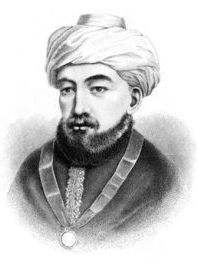
Maimonides, also known as Moses ben Maimon (most commonly referred to by the acronym, Rambam), was a twelfth-century medieval Sephardic Torah scholar and one of the most important and prolific Jewish philosophers in history, whose body of work is still studied throughout the world today. One of the most important authorities (known in Hebrew as a “posek”) in Jewish history, Jews still refer to the Rambam’s rulings on various issues related to “halacha,” or Jewish law. His Mishnei Torah, a fourteen-volume code which codified halacha, is considered among the greatest studies of Jewish religious law to date. The Guide for the Perplexed (1190) originally written in Arabic, which married Jewish theology with Aristotelian philosophy, is also among Rambam’s most legendary written works. In commenting on the Mishnah (the Oral Torah), Rambam created his famous “13 Principles of Faith,” in God. Among the most cited of his legal formulations is his stance on justice and execution, in which he famously wrote, “It is better and more satisfactory to acquit a thousand guilty persons than to put a single innocent one to death.”
Born in Córdoba in the Almoravid Empire (modern-day Spain) in 1138, Rambam was unique in his generation because he also worked as a physician, astronomer, and a philosopher, in addition to serving as a rabbi. In fact, Rambam, who also lived in Egypt and Morocco, was the personal physician of Sunni Sultan Saladin, a preeminent leader in the Arab Muslim world who led the campaign against the Crusaders in the Third Crusade. Rambam’s close ties with Saladin as well as his exchange with his Muslim contemporaries, most notably the Ibn Rushd, the jurist and polymath, are a testament to an era of once-vibrant relations between Jews and Muslims in the Levant. Ramban was appointed a “Nagid,” or “princely leader,” of the Egyptian Jewish community in 1171. He died in Egypt (1204), but is buried at the Tomb of Maimonides in Tiberias, in Israel’s lower Galilee. Today, countless schools and places of study around the world are named after this preeminent scholar, and he remains a particularly beloved figure in Spain. A monument of the Rambam currently stands in Córdoba and his former home is still intact in Fez, Morocco. Rambam’s writings are widely available online.
